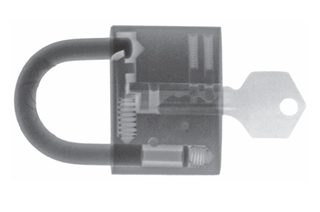Dynamic Neutron Radiography (dNR)
dNR is utilized for time-dependent, non-destructive investigations, allowing researchers to acquire real-time data and observe the inner workings of a system where components cannot be seen using other radiation modalities, such as x-rays.
When neutrons interact with matter, they provide an image of transmitted radiation called a neutron radiograph. In comparison to x-rays, neutron interactions are not dependent on the atomic number of the sample. In this way, neutron radiation is able to visualize objects in a complimentary way to x-ray radiation.

Cameras for Dynamic Neutron Radiography

PI-MAX4
Combining the advantages of EMCCDs and ICCDs, the PI-MAX4 delivers precision timing, sensitivity, intelligence and speed.
dNR relies on fast frame rates to image the inner mechanics of a system in real-time. The PI-MAX4 offers high frame rates at 6 MHz/16-bit digitization as well as a 1 MHz sustained gating repetition rate, ideal for capturing all the information from a moving system.
As these systems usually cover a larger area, a large imaging area is required. The PI-MAX4 achieves 4x the imaging area of any other currently available intensified CCD camera, allowing for the collection of more data per image.
